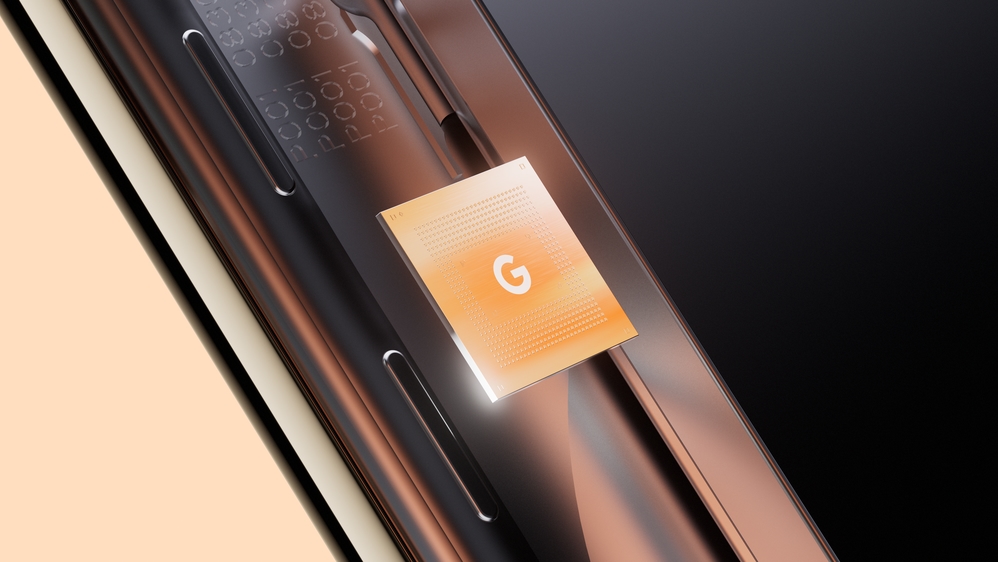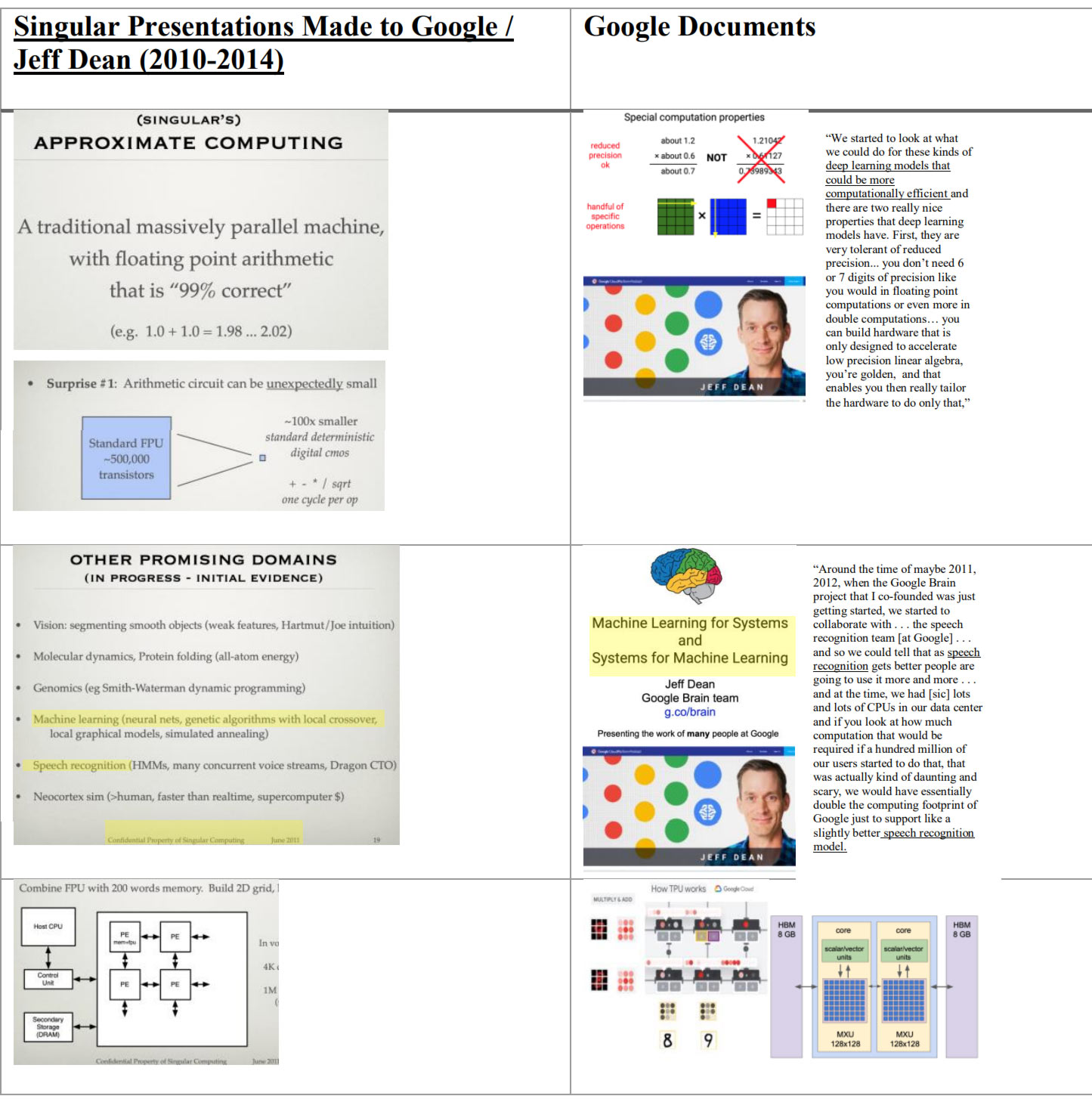Google settles ahead of closing arguments in Singular Computing’s $1.67 billion AI tech patent trial
The scale of the settlement has not been revealed.

Earlier this month Google went to court to battle a lawsuit that alleged that it had designed its Tensor Processing Units (TPUs) using technological innovations devised by Singular Computing. The plaintiff had sought $1.67 billion in damages, claiming that Google used its patented architectures (patents filed in 2009) to create TPUs. On Wednesday, Google settled with Singular as the closing arguments in the case were scheduled to begin, reports Reuters. We don’t know the scale of the settlement, and Google isn’t admitting any wrongdoing as part of the settlement.
Reading the story behind the case as shared by the Register, and looking at the District Court of Massachusetts complaint for patent infringement (PDF), sheds light on Singular’s rather strong case. Check out the main points:
- Singular Computing was founded in 2005 by computer scientist Dr. Joseph Bates, a researcher and lecturer at several prominent US universities before becoming a startup founder.
- Bates claims to have personally shown his patent-protected technologies to interested Google employees under an NDA on three separate occasions between 2010 and 2014.
- Bates said he made it clear to Google execs that the technologies discussed were patent-protected. US Patent 8,407,273, US 9,218,156, and 10,416,961 were filed across 2009 and 2010.
- Internal emails show that Jeff Dean, the current Google Chief Scientist, wrote to colleagues about how Bates’ designs would be "really well suited" to Google workloads.
- Singular asserts that Google willfully infringed on its patents in its designs. In the court document it said, “Following disclosure to Google by Dr. Bates of his invention, Google copied and adopted Dr. Bates’ patented invention, incorporating such into the accused TPUv2 and TPUv3 Devices and more generally into its data centers.”
- Singular provided a comparison series of its slides shown to Google vs later published Google slides about similar technologies.
Google benefitted from technologies like those outlined above as they would speed up operations and make processing more efficient for tools like Search, Gmail, Translate, YouTube, and others. However, at the start of the court case, it argued that it created its TPU designs independently. Moreover, it insisted that the team that created its TPUs never met with Bates and its underlying technology was fundamentally different from that represented by Singular's patents.
Reuters reports that after news of the settlement broke, a Google spokesperson continued to assert that Singular’s technology patents weren’t violated. Google was "pleased to have resolved this matter," claimed the spokesperson, but the settlement sum and terms weren’t disclosed.
Get Tom's Hardware's best news and in-depth reviews, straight to your inbox.

Mark Tyson is a news editor at Tom's Hardware. He enjoys covering the full breadth of PC tech; from business and semiconductor design to products approaching the edge of reason.
-
das_stig In other words, Google knew they used unlicenced IP, tried the old delay tactics to make the other party spend millions in legal fees hoping they will give up, settle in Googles favour or go bust. Now the court decision looked be going against them, so cheaper to settle out of court. Usual Mega Corp tactics, that should be outlawed, but that's low life USA business models for you, protect the rich !Reply -
bit_user Replyat the start of the court case, it argued that it created its TPU designs independently.
I find this quite plausible. Based on what that single image shows, Singular's ideas weren't particularly non-obvious.
Floating-point arithmetic has been around for more than 50 years, with people tweaking the range & precision to suit the application. In fact, back in 2008, IEEE 754 was updated to include support for 16-bit floats, which OpenGL (and presumably Direct3D?) then incorporated.
As for having a 2D array of processing elements, that's old hat for computer architectures involving any kind of HPC or parallel processing.
Unless there were some more novel ideas that were duplicated in Google's products in some way that couldn't be coincidental, I'd say this smells like a patent troll looking for a payday. It may even be that the Singular founder truly believes his ideas were novel and unique gems, but that doesn't necessarily mean they were. -
bit_user Reply
It's a big company. They said the TPU team didn't meet with this company and that's entirely plausible. You can't assume complete information efficiency, in an organization of that size.das_stig said:Google knew they used unlicenced IP,
That's only one possible interpretation. I take it you've never dealt with patent trolls?das_stig said:tried the old delay tactics to make the other party spend millions in legal fees hoping they will give up, settle in Googles favour or go bust.
Or, it could be that the plaintiff was willing to settle for an amount that was cheaper for Google than continuing to fight it. Sadly, we'll never know how strong their evidence was, nor the terms of the settlement, because such information is only public if/when the matter actually goes to court.das_stig said:Now the court decision looked be going against them, so cheaper to settle out of court.
In the event this was (effectively) a patent trolling situation, I applaud Google for holding out as long as they did. Patent trolls are parasites triggering higher prices on the products and services we all use. Worse yet, they disincentivize innovation and hurt business and employment opportunities in the tech sector.
